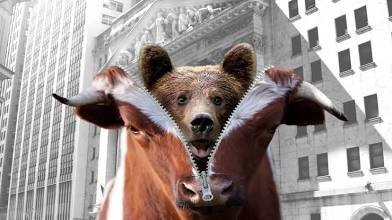the tariffs may not cause inflation as inflation is more a monetary phenomenon. people and the media use the word inflation but it isn’t inflation
they are using the wrong terminology
Adding tariffs cannot cause inflation anymore than removing tariffs can cause
deflation.
There are two schools of thought regarding inflation:
- “Inflation is always and everywhere a monetary phenomenon, in the sense that it is and can be produced only by a more rapid increase in the quantity of money than in output.” -- Milton Friedman, 1976 Nobel Prize in Economics winner. That is, expanding the money supply too quickly causes inflation.
- “Persistent high inflation is always and everywhere a fiscal phenomenon, in which the central bank is a monetary accomplice." -- Thomas Sargent, 2011 Nobel Prize in Economics winner. That is, too much persistent federal government spending causes persistent inflation.
According to the Fiscal Theory of the Price Level (FTPL), inflation is primarily caused by fiscal policy rather than monetary policy. According to this theory:
- Inflation occurs when government debt is larger than what people think the government will repay through future budget surpluses.
- The real (that is, inflation-adjusted) value of government debt, which declines with inflation, is equal to the present value of expected future fiscal surpluses.
Notice that neither tariffs nor relatively high US labor costs cause inflation. They cannot.
But what tariffs can do is change the
relative price of imported goods compared to domestic goods. For example, we can expect tariffs to cause the price of Vizio TVs made in China but sold in the USA to go up
relative to the price of Broadway tickets or a season's lift pass to Deer Valley. That isn't inflation; that is a change in relative prices. We consumers react to changes in relative prices of goods - in aggregate, we will buy fewer Chinese made TVs and instead spend the money on, for example, Broadway tickets and a pass to Disney World.



